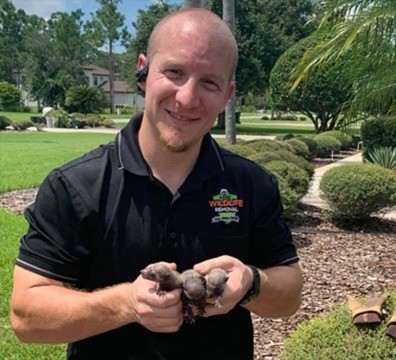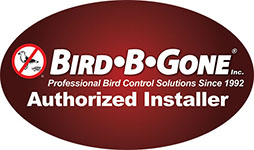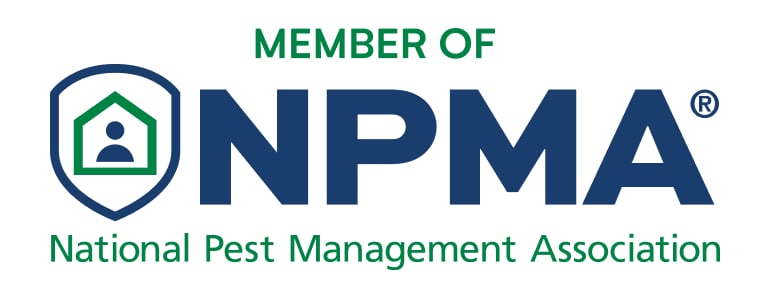Dead Animal Removal
Dead animal removal is a messy and unpleasant process. They are more than just smelly — deceased animals also pose major health risk to you, your family and pets! They carry diseases like rabies, plague, hantavirus pulmonary syndrome, tularemia (rabbit fever), salmonella and leptospirosis.
When left unattended dead animal carcass can contaminate soil or water sources with harmful infections like cryptosporidium or bayliscaris. The parasites or diseases once harbored by the animals can be contracted by pets like cats and dogs, which they can track inside homes.
They also attract other disease carrying pests that may come into contact with your food if they have been in the area for any length of time. It is important not only for keeping your property safe from wildlife pests but also for protecting your loved ones as well.
How Do Animals Die Around a House?
It’s not unusual for wild animals like moles, skunks, raccoons or opossums to die under a home. How did they get there, you ask? There are a few possible reasons these pests should make their final resting place beneath your foundation:
Dying animals trying to find shelter
Animals in distress and pain will attempt to find a safe place to rest. They usually go to tight and narrow areas such as the crawlspaces under a home. Additionally, they may try to find water sources if they are poisoned and dehydrating, leading them to your water pipes in the basement.
Wildlife caught in traps under the house
Nuisance animals may die around the house when they get caught on traps set by the homeowner. The person then forgets about the trap laid and ended up with a dead animal underneath their home.
Your pet brought it in
As with rodents, pets can bring small wildlife in and leave them under the house. Pets have a natural instinct to bring home animal carcass as if they were hunting prey.
Animal got stuck
In some cases, wild animals become trapped in tight spaces and are unable to escape. One such example of this is when a small animal falls into the wall cavity that stores wires for electrical devices or appliances inside your home. Unable to move anywhere else, they starve (or are eaten by another animal).
Removing a mother from her young
Another way that animals die inside of homes is when people take a mother animal away without bringing the kits/pups/young with it. The orphaned young will then starve and soon after die, as in the case of DIY animal removal or hiring inexperienced pest control companies.
Common Dead Animals in a Home
- Dead rats or mice in the attic.
- Dead squirrel or raccoon in the crawlspace.
- Dead rodent in the wall.
- A dead animal in your front yard.
Dead Animal in The Attic
Dead animals in the attic can be a nightmare for any family, and it’s not just because of how unpleasant they smell. Dead rats and mice in the attic are especially dangerous because they carry so many different diseases. Once an animal has died, it’s only a matter of time before the bacteria starts seeping into your living space. They also attract parasites like fleas that can spread diseases to both pets and humans.
Dead Animal in the Wall
Finding a dead animal in walls can be one of the most challenging things to find. They often require an experienced professional and it will take much time to do so.
Animal remains inside walls can cause a variety of problems, including structural issues like mold or mildew growth because of excessive moisture. Dead animal bodies release gases and moisture that promote mold growth.
Dead Animal in The Crawl Space
Dead animals under a house (or another structure) should always be handled with care. Handling dead raccoons, squirrels and other animals can be very dangerous, and they have been known to carry a large number of diseases.
Dead animal in the crawlspace is one of the most common nightmares homeowners face. Crawlspaces are hot, dark, humid places that will make the putrid smell so much worst and it’s not easy to get rid of the carcass without proper preparations.
Dead animal removal in the crawl space is one service that simply isn’t worth doing yourself!
How Long Will A Dead Animal Smell?
One of the most unpleasant smells in nature is that emitted from a rotting animal. The strong smell of a decomposing dead animal can last anywhere between a week to a month depending on how large an animal it was and the environmental condition on where it died.
The very strong odors stay as long as the dead animal is decomposing but will disappear eventually when the carcass has completely dried out.
How to Find a Dead Animal
Searching for a deceased animal when you have no idea where it could be hidden is quite a daunting task, However there are some things you can look out for if you’re trying to find one in your home:
1. Find the area where the smell is most potent.
A good way to find it is by following its smell. The closer you get, the stronger and more distinct that smell will be.
2. Check for flies.
Flies are a great indicator of where a dead animal might be. They can sniff out something rotten better than anyone else! If you see them swarming around an area, it’s likely that they found the dead animal.
3. Look out for grease stains or a “juicy spot”.
A creature that died in a ceiling and is large enough will usually create a stain or “juicy spot” to point out its presence. The discoloration where the dead animal’s body has decayed is usually quite apparent.
4. Watch out for maggots.
If the animal died on the ceiling, it may drop maggots. This will give you a good idea of where it is located.
5. Hire a professional.
For the sake of your health and sanity, it is still best if you get a professional to find and remove the dead animal in your house. Professionals have the proper equipment, training, and experience to deal with this unpleasant task.
DIY carcass removal will only put your health at risk and possibly make the overall situation worse. Contact us and we’ll come out and take care of the situation for you.
Dead Animal Removal Treasure Coast
That’s where AAAC Wildlife Removal of the Treasure Coast comes in. We offer dead animal removal services to homeowners across the Treasure Coast who are currently dealing with this unfortunate situation. Now you won’t have to worry about putting up with that awful smell any longer!
Wildlife Experts at AAAC Wildlife Removal will come out and remove the offending carcass from your property as soon as possible so you can enjoy living inside your house again without having to hold your nose every time you walk past them.
Service Areas
AAAC Wildlife Removal provides woodpecker control services in Brevard County, Indian River County, St. Lucie County, Martin County, Palm Beach County, West Palm beach,Palm Bay, Palm City, and all Treasure Coast Cities.
Treasure Coast cities we service include Stuart FL, Vero Beach FL, Hobe sound, FL., Fort Pierce FL., Fellsmere FL., Pompano Beach FL., Port St Lucie west, Port Salerno, FL., FL., Jensen Beach Fl., Sebastian, FL., Jupiter island, FL., Sewall’s point, PL.,
FAQs
How much does dead animal removal cost in the Treasure Coast?
The cost depends entirely on the situation, a simple removal of animal carcass in Treasure Coast may cost you about $150 to $250. Cost may go up depending on how large the animal is and how difficult they are to reach. Is the animal in the attic or a basement? Is it in the wall? Is it inside a crawl space? Contact us to request a detailed quote.
Who will remove dead animals in Treasure Coast, FL?
Depending on where you are, the local sanitation unit will usually pick up your dead wildlife. However, for best service, which includes decontamination and wildlife damage repair, it is best if you call a wildlife removal company, like us!
How long will it take to remove a dead animal from inside a wall?
This depends on how large the animal is. Dead mice and rats can be removed in under an hour, squirrels and raccoons may require a couple of hours.
Should I hire a professional?
Absolutely! Deceased wildlife removal is not for the faint of heart and if you do not have experience, we highly recommend that you contact a company that does. Animal carcasses can carry several different parasites and bacteria that are extremely dangerous to your health.
How are the carcasses disposed of?
Animal carcasses are disposed of through a variety of different methods, namely: Burial, Incineration, Rendering, Digesters, and Composting.
Call us Today!
AAAC Wildlife Removal of Treasure Coast specializes in the humane removal of wildlife as well as dead animals from homes. We offer professional wildlife control services and wildlife removal services as well as fix wildlife damage. We handle bat removal & bat control, animal control, wildlife trapping, armadillo removal, raccoon removal, rodent problem, squirrel removal, removal of nuisance animals, rodent control, possum removal, rat removal, rat control, critter control, control of invasive species, removal of venomous snakes, humane animal removal, we also do animal damage repairs and resolve other wildlife issues.
Any wild animal issue that you may have can be thoroughly resolved by our Treasure Coast wildlife control company. Call AAAC Wildlife Removal and let us solve your wildlife issues today!








